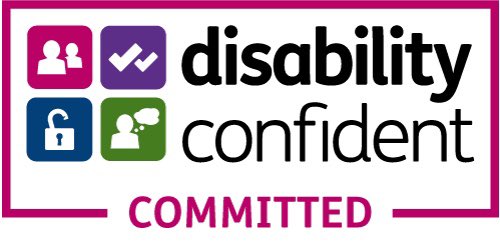From skills shortages to fast-approaching target deadlines, the engineering, technology and science sectors are experiencing hiring challenges that put huge amounts of pressure on organisations; and can lead to some impulsive decision making.
Interviews are challenging enough, without then having to deal with a counter-offer situation.
What is a counter-offer?
It’s a term that gets bandied around a lot in recruitment, but you may not yet have heard of it yourself; particularly if this is your first time as acting hiring manager.
The simplest explanation: a counter-offer is an offer made in response to another.
When a candidate presents their resignation, it’s common, particularly in candidate-short markets, that their employer will try to encourage them to stay by offering what they believe the candidate wants.
This can leave you in a tricky situation. No doubt, you’ll be wondering whether to get into a battle of negotiations or just walk away.
Here’s 6 tips to help you combat these scenarios.
1. Understand the candidate’s underlying motivationA good recruiter will have already questioned, and questioned again, a candidate's reasons for wanting to leave their current employer. But, regardless of a recruiter’s involvement, it’s important that you try to learn as much about your prospective employee as possible. Ask questions like:
- What is the real reason you’re looking to leave?
- What is it that your current employer does to make you feel valued?
- How have you progressed in your current role?
- What opportunities to progress do you currently have?
- What are 3 things missing from your current role/organisation?
By asking sensible, deep-dive questions at the interview stage, you are mitigating the chance of a counter-offer being accepted before the situation occurs.
2. Enhance your candidate experience
The candidate experience and Employer Value Proposition (EVP) are fundamental elements of a company’s employer brand.
EVP is how an organisation attracts and retains their staff i.e. how they are perceived. The stronger your EVP, the better the talent you attract. The best way to determine what position your EVP is currently in, and how to improve it, is by speaking to your staff. Conducting an anonymous survey will give your employees a safe platform to feedback openly and honestly, and give you the insight you need to strengthen your employer brand.
Elements that your EVP might consist of include:
- Salary
- Flexibility
- Work-life balance
- Mental health and well-being support
- Culture
- Training and development opportunities
- Benefits
- Employee recognition
- Non-salary financial perks (e.g. commuter compensation, bonuses)
- Travel opportunities
So your EVP attracts the talent. The candidate experience is how an applicant feels when moving through your organisation's hiring process. This will include where they find your vacancy, the application process, screening methods, interview structure and onboarding processes.
Chris Jones, Principal Recruitment Consultant in Engineering for Scantec, says, “The speed between various stages of the interview process is one that, in my experience, can affect a candidate's decision. In talent-short markets, don’t draw out the process. Try to get things moving as swiftly as possible. Where you can, also give your prospects a tour of the workplace to save this being a niggle in their mind later on.”
The stronger your EVP and more positive the candidate experience, the less likely your prospect will consider accepting a counter-offer further down the line.
3. Communicate. Well.
Good communication is the solution to so many organisational problems. Hiring is no exception. We are in a different era of talent acquisition. Gone are the days where you could leave a candidate waiting for an offer on tender-hooks for days at a time. Acting fast is key; however, even if the offer isn’t being issued right away, communicating what is happening in the background is crucial to winning talent.
Communication ties in quite nicely with your EVP and the candidate experience. Ensuring you have a structure in place will see you fair far better than a competitor who doesn’t - and help you combat counter-offer situations.
4. Don’t try your luck
Chris Jones, Principal Recruitment Consultant in Engineering for Scantec, says, “From experience, especially for hard to fill roles, low-balling (which is, coming in with a lower offer than the candidate is worth) is completely inadvisable. It leaves you very exposed to potential counter-offers and can raise red flags with potential talent over your viability as an employer.”
It is worth noting that many candidates won’t accept a counter-offer until their notice period is nearly at an end; particularly if the two financial incentives are especially close. By offering low, you run the risk of being defeated by counter-offers and having to start the hiring process from square one; which can end up being a costly exercise.
5. Call in professionals
There is a reason businesses employ recruiters. Recruiters are trained professionals in the art of negotiation. They likely know both sides well - your organisation, and the candidate - and possess skills, knowledge and the time to dedicate to the situation, that could save you money and get you the talent you want.
6. Know when to walk away
It can be genuinely difficult for a candidate stuck between two offers; especially when one of them comes from their current employer. Yet, there comes a point when you have to question the candidate’s enthusiasm to work for your business. If you have sold the benefits throughout the entire process, demonstrated a strong EVP, a fantastic candidate experience and put your best offer forward, yet it still isn’t enough, it’s likely time to walk away.
Get in touch
Every counter-offer situation is different. If you are currently hiring and would like further advice on dealing with counter-offers, or how to find the best engineering candidates for your organisation, get in touch with Scantec today to discuss our recruitment services.







